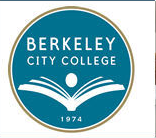




A hybrid course is a mix of a “traditional” face to face course and an on-line course.
Here are examples of hybrid classes that start Spring 2011 at Berkley City College. Scroll about half way down the page to see the hybrids.
Virtual classes are those without the trappings of physical brick and mortar location. When I think of virtual classes, the University of Phoenix, for better or worse, pops in my mind.
An example of academic distributed learning is Texarkana Community College. This institution, which I attended, now now offers on-line coursework in addition to maintaining a “brick and mortar” facility.
Corporate Distributed Learning
An example of corporate distributed learning is the site Public School Works. Our districts uses this site for health training purposes. This site “manages” the training “status” of employees and assigns courses accordingly. While I realize a school isn’t a corporation, according to our text “....training is managed by learning management systems (LMSs), which track who has taken what course at what time, and which individual objectives have or have not been met.”. I believe Public School Works falls into this category.
For-Profit Distributed Learning
Our textbook defines distributed learning as “...any educational or training experience that uses a variety of means, including technology to enable learning.”. If that is the case, then I feel that Electronic Campus qualifies. Electronic Campus provides a database of electronic coursework beginning with high school course and continuing into higher ed. It appears that Electronic Campus itself is NOT the educator; the institution merely assists students in location needed courses. Since Electronic Campus does facilitate the enabling of learning, I think it could qualify for For-Profit Distributed Learning.
No comments:
Post a Comment